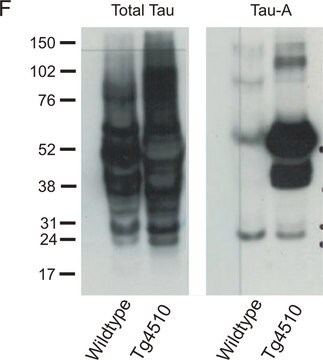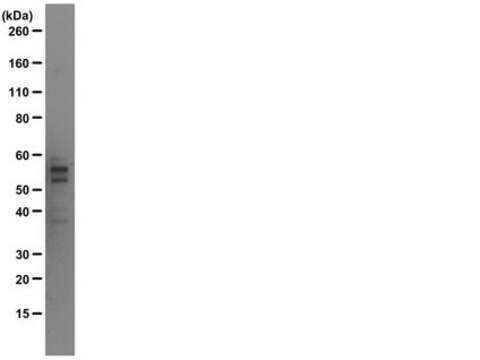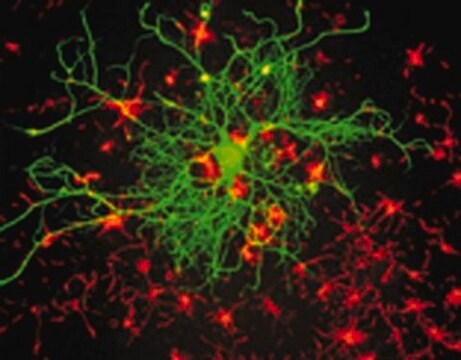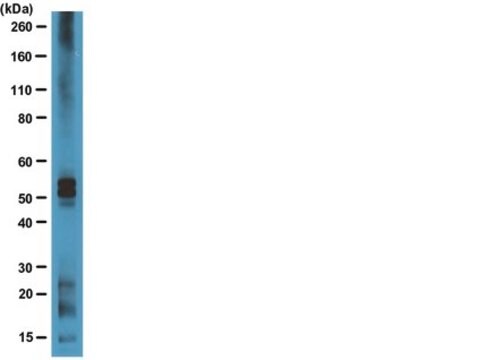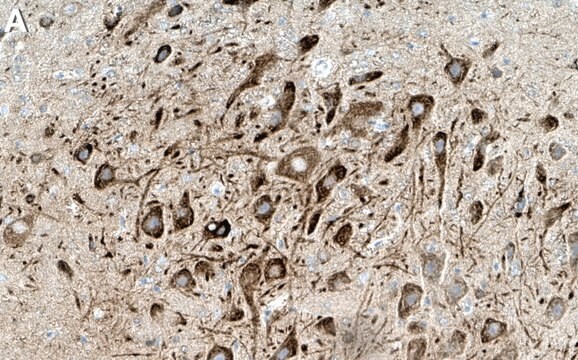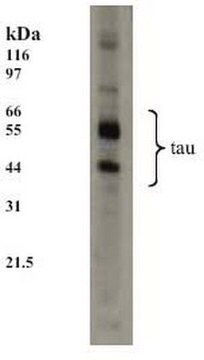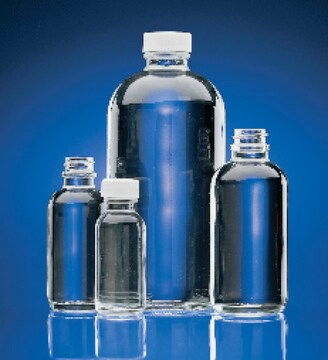AB9744
Anti-14-3-3 τ (tau) Antibody
serum, Chemicon®
About This Item
IHC
WB
immunohistochemistry: suitable
western blot: suitable
Empfohlene Produkte
Biologische Quelle
rabbit
Qualitätsniveau
Antikörperform
serum
Antikörper-Produkttyp
primary antibodies
Klon
polyclonal
Speziesreaktivität
rabbit, rat, bovine, sheep, mouse, human, chicken
Hersteller/Markenname
Chemicon®
Methode(n)
ELISA: suitable
immunohistochemistry: suitable
western blot: suitable
NCBI-Hinterlegungsnummer
UniProt-Hinterlegungsnummer
Versandbedingung
dry ice
Posttranslationale Modifikation Target
unmodified
Angaben zum Gen
human ... YWHAQ(10971)
Allgemeine Beschreibung
The 14-3-3 tau antibody is one of a panel of antibodies that were generated against 14-3-3 isoforms and have demonstrated their potential for use as an ELISA-based diagnostic tool. These antibodies will allow the research to investigate the role of this protein in key cellular processes and neurological disorders such as Creutzfeldt-Jakob, Alzheimer′s and Parkinson′s Disease.
Spezifität
Immunogen
Anwendung
Immunohistochemistry: 1:30-1:60 on mouse brain tissue which was treated by hydrated autoclaving at 121°C for 15 minutes prior to immunolabeling. Endogenous peroxidase was blocked with hydrogen peroxide in methanol and non-specific labeling with normal goat serum at 1:20 for 5 minutes.
ELISA
Optimal working dilutions must be determined by end user.
Zielbeschreibung
Rechtliche Hinweise
Sie haben nicht das passende Produkt gefunden?
Probieren Sie unser Produkt-Auswahlhilfe. aus.
Lagerklassenschlüssel
11 - Combustible Solids
WGK
WGK 1
Flammpunkt (°F)
Not applicable
Flammpunkt (°C)
Not applicable
Analysenzertifikate (COA)
Suchen Sie nach Analysenzertifikate (COA), indem Sie die Lot-/Chargennummer des Produkts eingeben. Lot- und Chargennummern sind auf dem Produktetikett hinter den Wörtern ‘Lot’ oder ‘Batch’ (Lot oder Charge) zu finden.
Besitzen Sie dieses Produkt bereits?
In der Dokumentenbibliothek finden Sie die Dokumentation zu den Produkten, die Sie kürzlich erworben haben.
Unser Team von Wissenschaftlern verfügt über Erfahrung in allen Forschungsbereichen einschließlich Life Science, Materialwissenschaften, chemischer Synthese, Chromatographie, Analytik und vielen mehr..
Setzen Sie sich mit dem technischen Dienst in Verbindung.